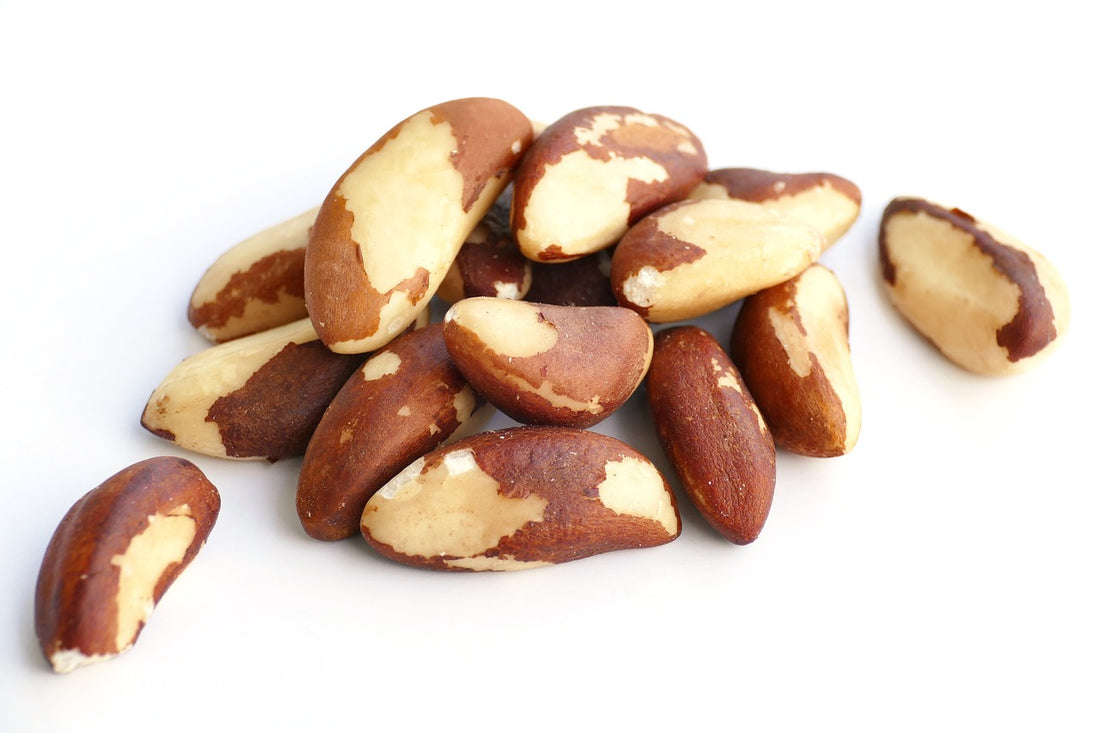Most of us know that a varied diet full of fruits, vegetables, and proteins can help support our health because it’s important to get essential nutrients, which are nutrients that our bodies don’t produce on their own.
Of the essential nutrients, zinc and selenium play a critical role in supporting our immune system1. Learn more about the benefits of each of these key minerals.
Why is Zinc Important?
Our bodies use zinc for a number of important chemical reactions. This trace mineral helps support a healthy immune system and maintain cells, including those that support our senses of taste and smell.
A Healthy Immune System
Zinc is crucial for maintaining a healthy immune system4. It helps activate T-lymphocytes5, which are essential for immune responses, aiding the body in fighting off infections and illnesses.
Bodily Function
Zinc plays a vital role in various bodily functions, including DNA synthesis, protein production, and cell division. It also supports wound healing and is necessary for the proper functioning of enzymes involved in metabolism6.
Recommended Daily Intake
The recommended daily intake of zinc for men is 11 mg and 8 mg for women. Consuming zinc-rich foods such as meats, poultry, seafood, legumes, and whole grains can help meet these requirements and support overall health.
What Is Selenium?
Selenium is an essential trace mineral found naturally in various foods and soil. It plays a vital role in many bodily functions, including protecting cells from damage and supporting the immune system.
Why Is Selenium So Important?
Selenium is crucial for overall health due to its involvement in antioxidant defense, thyroid hormone metabolism, and immune function. Adequate selenium intake is necessary to prevent cellular damage and support various physiological processes.
Defending Against Oxidative Stress
Among other critical functions, this essential mineral helps defend against oxidative stress, which occurs when the body produces more free radicals than it can neutralize.
Recommended Daily Intake
The recommended daily intake for adults is about 55 mcg a day7. Brazil nuts are a top source of selenium, and fish, red meat, and enriched breads are good sources as well. You’ll also find it in vegetables, but the amount varies depending on the soil in which the plants grow.
Which of These Essential Elements does Airbone Have?
You can choose from a number of Airborne chewables and effervescent tablets to support your healthy immune system.*
The zesty orange effervescent tablets provide vitamin C and other vitamins, minerals, and herbs, including selenium and 73% of the recommended daily value of zinc. The berry chewables offer a crafted blend of vitamins and minerals, including 1,000 mg of vitamin C per serving, and are an excellent source of zinc, selenium, and manganese.
Check with your doctor to see if immune-support supplements are the right choice for you.
|
*This statement has not been evaluated by the Food and Drug Administration. This product is not intended to diagnose, treat, cure, or prevent any disease. |
References
- Gać P, Czerwińska K, Macek P, et al. The importance of selenium and zinc deficiency in cardiovascular disorders. Environmental Toxicology and Pharmacology. 2021;82:103553. https://pubmed.ncbi.nlm.nih.gov/33238203/
- Zinc. The Nutrition Source. Published November 1, 2019. https://nutritionsource.hsph.harvard.edu/zinc/
- Nutrition facts for oysters, recommended daily values and analysis. NutrientOptimiser. Accessed July 17, 2024. https://nutrientoptimiser.com/nutritional-value-mollusks-oyster-eastern-wild-cooked-moist-heat/
- Gać P, Czerwińska K, Macek P, et al. The importance of selenium and zinc deficiency in cardiovascular disorders. Environmental Toxicology and Pharmacology. 2021;82:103553. https://pubmed.ncbi.nlm.nih.gov/37513551/
- Hönscheid A, Rink L, Haase H. T-lymphocytes: a target for stimulatory and inhibitory effects of zinc ions. Endocrine, Metabolic & Immune Disorders Drug Targets. 2009;9(2):132-144. https://pubmed.ncbi.nlm.nih.gov/19519463/
- Lin PH, Sermersheim M, Li H, Lee P, Steinberg S, Ma J. Zinc in Wound Healing Modulation. Nutrients. 2017;10(1):16. https://www.ncbi.nlm.nih.gov/pmc/articles/PMC5793244/
- National Institutes of Health. Office of Dietary Supplements - Selenium. Nih.gov. Published 2017. https://ods.od.nih.gov/factsheets/Selenium-Consumer
